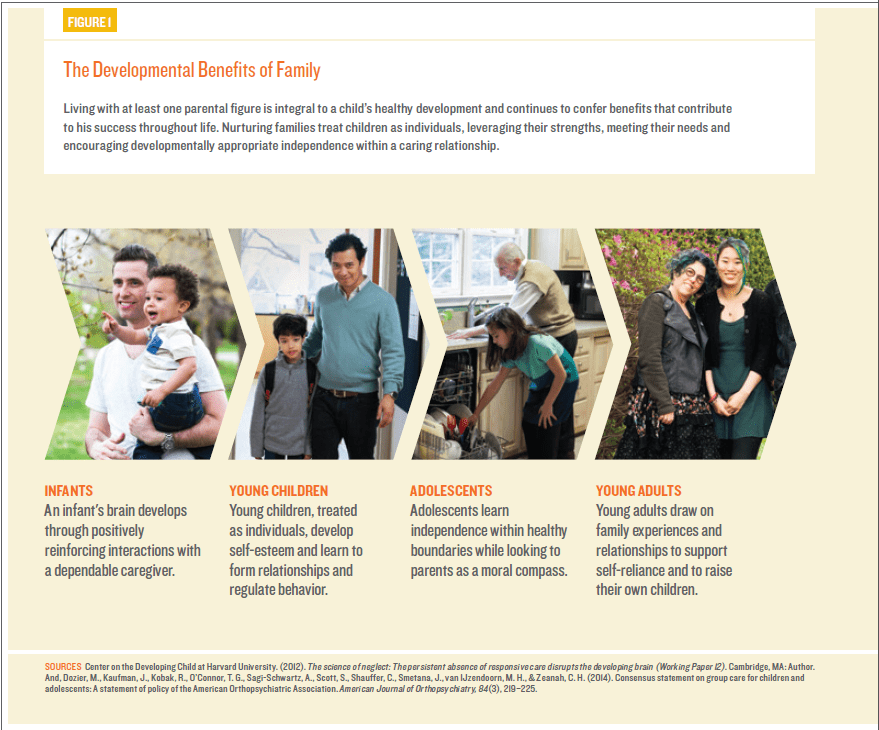National report shows the importance of placing children in care in family settings.
Children who are raised in stable, supportive and nurturing families have the best chance for success in life.
A report released earlier this week by the Annie E. Casey Foundation shows, on any given day, an average of 57,000 foster care children are in group placements nationally–more than 1,000 of whom live here in North Carolina. The report calls for improved efforts to ensure that children are placed in quality family settings when they enter the child welfare system.
Close, supportive relationships and attachments to responsible adults promote the healthy development and well-being of children and youth. Children in foster care who have been placed in group care are less likely to have robust, nurturing attachments that buffer against the effects of stressors like child maltreatment and are fundamental for healthy brain development. As a result, these children experience poorer physical, educational and emotional outcomes as they age—effects that persist into adulthood.
There’s good news on the home front. The North Carolina General Assembly is considering several bills that could increase the pool of available foster families, further normalize family placement environments for children already in care and improve outcomes for children in foster care as they transition to adulthood:
- The Foster Care Family Act (S423/H407) would open the door for children in foster care to participate in normal, age-appropriate activities like spending the night at a friend’s house, playing a sport and getting a driver’s license. The bill would also allow DHHS to pursue a Medicaid waiver and would provide liability insurance for foster parents. This bill passed the Senate, and has passed 1st reading in the House.
- Fostering Success (H424) would extend the age of foster care through 19 for youth who are finishing high school or completing a program leading to an equivalent diploma, pursing post-secondary or vocational training while currently employed, or suffering from a medical condition. This bill is currently in the House Appropriations Committee.
The report calls for an enhanced continuum of care that includes services to help keep birth families together, resources to support kinship families when children must be placed in a new homes, a strong network of non-relative foster families, including treatment foster care families who are equipped to handle more severe needs, and residential treatment for the small percentage of young people who require treatment to safely live in families.
Click here to read NC Child’s press release about the report.
Visit www.aecf.org to view the full report.

